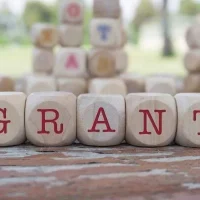Deadline: 06-Oct-21
The European Commission (EC) is pleased to invite proposals for its grant program, the Integrated urban food system policies – how cities and towns can transform food systems for co-benefits to ensure healthy, affordable, safe and sustainably produced food to their residents.
Many cities and their inhabitants are disconnected from their food – e.g. where it comes from, how it is produced, the impact food production and consumption have on the environment, climate and health, and the complexity and fragility of food value chains.
The way in which cities deal with food is highly variable and often fragmented, but integrated urban food policies and social innovations providing co-benefits are progressively emerging throughout Europe.
Proposals under this topic should address the following four issues and be targeted to help at least 5 cities/towns lacking integrated food systems policies to take ambitious and decisive action:
- Understanding: map local food systems, policies and actions, with a special focus on assessing short supply chains and urban food environments (including harmful marketing and advertising and unequal access to healthy food for the urban poor), and on developing local indicators and monitoring frameworks.
- This should be built on existing tools such as the “Food systems dashboard framework” and should include the development of food systems stakeholder maps, maps of the formal and informal food flows and retail channels and, especially relevant in case of food shock crisis, maps identifying the most vulnerable people and their access to nutritious food.
- This should include analysing the local responses to emergencies and take into account the environmental, social and economic dimension.
- Governance: develop and evaluate innovative, multi-actor, urban food systems governance processes and capacities for science-backed integrated policy making and implementation actions that deliver on farm to fork strategy objectives and Food 2030 co-benefits for health, environment, climate, circularity and inclusion, while minimizing trade-offs. Special attention should be given to improving food environments, providing increased food access to vulnerable groups and fostering short supply chains.
- Engaging: mobilise a wide diversity of food system actors from farm to fork (i.e. public and private, the financial sector, civil society and academia). Higher education institutions and research centres, in particular, should be engaged to collaboration with local actors to support evidence-based food policy development and to help provide local solutions to integrated food system challenges.
- Mutual learning: reinforce or create new networks of cities and towns to share good practices and learn from and support each other. This implies involving cities with well-developed food policies to provide guidance and lessons learned, as well as new forms of collaboration/twinning.
Funding Information
The check will normally be done for the coordinator if the requested grant amount is equal to or greater than EUR 500 000, except for:
- public bodies (entities established as a public body under national law, including local, regional or national authorities) or international organisations; and
- cases where the individual requested grant amount is not more than EUR 60 000 (lowvalue grant).
Expected Outcomes
In line with the European Green Deal priorities and the farm to fork strategy for a fair healthy and environmentally friendly food system, as well as of the EU’s Climate ambition for 2030 and 2050, the successful proposal will support the development of policies, business models and market conditions contributing to the sustainable, balanced and inclusive development of urban and peri-urban areas and to the empowerment and resilience of their communities, who can access, afford and choose healthier, nutritious and environmental-friendly food.
Project results are expected to contribute to all of the following expected outcomes:
- City-region food systems and of the urban-rural linkages across Europe are better understood and taken into account in urban policies;
- The concept of local food environments is better understood and taken into account in local planning, with a view to driving people towards healthier food choices and transforming urban food systems to be healthier, circular and resilient;
- More cities and towns build on good practice initiatives (e.g.: signatory cities of the Milan Urban Food Policy Pact) to develop integrated urban food policies and planning frameworks linking health, environment and food systems, bridging the national and the local level and including risk prevention and reduction plans to anticipate and manage food systems shocks, as well as to develop resilience;
- Strengthened urban food systems governance through increased multi-stakeholder engagement in designing and implementing urban food policies in cities and towns across Europe, representing different cultural and geographical settings;
- More Higher Education Institutes engaging in structured and long-term collaborations with local/regional actors to help transform their urban food system through participatory R&I;
- Improved decision-making by government actors willing to commit to change their local food systems, based on ready-to-use knowledge on the typologies, evolution, outcomes and impacts of integrated local food policies, throughout and within Europe, and in comparison with other regions.
Eligibility Criteria
To be eligible for funding, applicants must be established in one of the eligible countries, i.e.:
- the Member States of the European Union, including their outermost regions;
- the Overseas Countries and Territories (OCTs) linked to the Member States;
- eligible non-EU countries:
- countries associated to Horizon Europe;
- low- and middle-income countries.
Legal entities which are established in countries not listed above will be eligible for funding if provided for in the specific call conditions, or if their participation is considered essential for implementing the action by the granting authority.
For more information, visit https://bit.ly/3dr4Cf3





![Call for Applications: “Voices in Motion” Program [Sri Lanka] - fundsforNGOs Call for Applications: “Voices in Motion” Program [Sri Lanka]](https://www2.fundsforngos.org/wp-content/uploads/2023/04/dance-200x200.jpg)



































